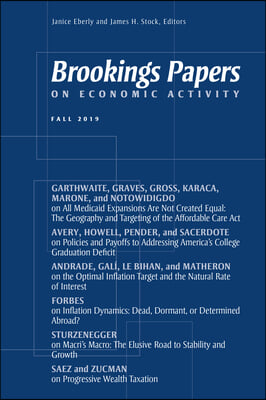Comments and Discussion
IF 2.8
3区 经济学
Q1 ECONOMICS
引用次数: 0
Abstract
COMMENT BY GARY GORTON Decentralized finance (DeFi) is a blockchain-based set of smart contracts that executes financial transactions without a centralized authority. It relies on member agents jointly making decisions. It is a large and growing sector of crypto space that has the potential to significantly disrupt the financial sector. “Disruptive” in the sense of Christensen (2011), it is a new technology that will reduce or eliminate the need for some set of skills or technologies. For example, the advent of personal computers disrupted the typewriter market. So, the question is: Will DeFi significantly disrupt banking? Regulators and academics need to understand this space because while DeFi is only embryonic currently, it will grow and morph. Makarov and Schoar clearly and comprehensively summarize the ongoing developments, giving us an introduction to this space. Their overview is important because there is bewildering terminology that is little understood by many. It is important to keep in mind that we are in the very early days of blockchain, DeFi, smart contracts, and stablecoins. These early days are somewhat like these two examples: in 1899, there were 30 American car companies, and by the end of the next decade an additional 485 had started up. But this number dropped from 253 in 1908 to only 44 by 1929 and three companies—Ford, General Motors, and Chrysler—accounted for意见及讨论
去中心化金融(DeFi)是一套基于区块链的智能合约,在没有集中权力的情况下执行金融交易。它依赖于成员代理共同做出决策。这是一个庞大且不断增长的加密领域,有可能严重扰乱金融行业。Christensen(2011)所说的“颠覆性”是一种新技术,它将减少或消除对某些技能或技术的需求。例如,个人电脑的出现扰乱了打字机市场。因此,问题是:DeFi是否会严重扰乱银行业?监管机构和学者需要了解这个领域,因为尽管DeFi目前只是萌芽阶段,但它将会成长和演变。Makarov和Schoar清晰而全面地总结了正在进行的发展,为我们介绍了这个领域。他们的概述很重要,因为有许多人不太理解的令人困惑的术语。重要的是要记住,我们正处于区块链、DeFi、智能合约和稳定币的早期阶段。这些早期的日子有点像这两个例子:1899年,美国有30家汽车公司,到下一个十年结束时,又有485家汽车公司成立。但这一数字从1908年的253家下降到1929年的44家,其中三家公司——福特、通用汽车和克莱斯勒
本文章由计算机程序翻译,如有差异,请以英文原文为准。
求助全文
约1分钟内获得全文
求助全文
来源期刊

Brookings Papers on Economic Activity
ECONOMICS-
CiteScore
10.10
自引率
0.00%
发文量
12
期刊介绍:
The Brookings Papers on Economic Activity (BPEA) is a semi-annual academic conference and journal that pairs rigorous research with real-time policy analysis to address the most urgent economic challenges of the day. Working drafts of the papers are presented and discussed at conferences typically held twice each year, and the final versions of the papers and comments along with summaries of the general discussions are published in the journal several months later. The views expressed by the authors, discussants and conference participants in BPEA are strictly those of the authors, discussants and conference participants, and not of the Brookings Institution. As an independent think tank, the Brookings Institution does not take institutional positions on any issue.
 求助内容:
求助内容: 应助结果提醒方式:
应助结果提醒方式:


